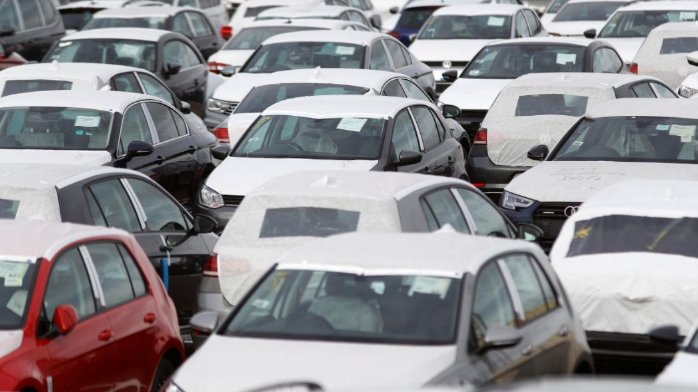
Markets
15:39, 14-Jan-2019
Automakers in China brace for another bumpy ride after tough 2018
Updated
15:38, 17-Jan-2019
CGTN

Car makers in China are bracing for zero to tepid growth in sales this year, after a tough 2018 when the world's top auto market probably contracted for the first time in about two decades, as slowing economic growth drags on demand.
Companies such as homegrown Geely and Britain's biggest automaker Jaguar Land Rover have in recent days flagged caution about China sales in 2019, hit also by Beijing's trade war with the United States.
“We should notice the big uncertainties among macro economy and trade tensions, which hit the auto market in China last year and may happen again this year,” Yale Zhang, head of consultancy AutoForesight, told Reuters.
China's top auto industry association expects the country to sell 28 million vehicles in 2019, steady versus 2018, while other government and industry bodies see a 0-2 percent growth.
Automobile sales in China fell about 14 percent in November from a year ago, steepest in nearly seven years and the fifth straight decline in monthly numbers.
Winners and losers
Ford was the worst performer among global car makers in China last year, with its sales shrinking 37 percent.
Geely, China's most successful carmaker, sold 20 percent more cars in 2018, but this was sharply lower than a 63 percent growth in 2017. It is forecasting flat sales this year.
Japan's Toyota Motor, however, bucked the trend, with a 14.3 percent rise in sales in China, versus six percent growth in 2017, helped by better demand for its luxury brand Lexus and improved marketing efforts.
The bleak numbers add to worries for investors, already spooked by signs of a broader drop in demand from the world's No.2 economy, especially after Apple's rare revenue warning citing weak iPhone sales in the country.
Analysts are, however, counting on measures promised by China to buoy spending as well as rising demand for new energy vehicles (NEVs) to bring some relief.
Policy boost
China's state planner has said it will introduce policies to lift domestic spending on items such as autos, without providing specifics. Beijing has also made changes to the income tax threshold to hike incomes and personal spending power.
This could help resolve the industry's current issues of unsold inventory, drive sales growth and provide relief to the economic pressures China is facing, said Patrick Yuan, Hong Kong-based analyst at Jefferies.
“With that, car sales growth could recover to as high as seven percent” this year, he said.
According to Alan Kang, an LMC Automotive analyst, demand could also draw support as consumers stop putting their buying decisions on hold in hopes Beijing will reintroduce purchase tax cuts on smaller cars - a policy it phased out last year.
As their hopes for tax cuts “evaporate in 2019”, these consumers will trickle back in, he added.
However, some analysts struck a somber note amid forecasts China's economy would slow further this year. Data this month is expected to show the economy grew around 6.6 percent in 2018 - the weakest since 1990. Policy sources have said Beijing is planning to set a target of 6-6.5 percent for 2019.
Source(s): Reuters

SITEMAP
Copyright © 2018 CGTN. Beijing ICP prepared NO.16065310-3
Copyright © 2018 CGTN. Beijing ICP prepared NO.16065310-3